Betta fish, known for their vibrant colors and flowing fins, are a popular choice for home aquariums. However, to keep these beautiful creatures healthy and thriving, it’s crucial to provide them with the right nutrition. The best food for betta fish can significantly impact their overall health, coloration, and longevity.In this article , we cover “Good food for Betta fish “ in detail.
Betta Fish Diet
Betta fish, also known as Siamese fighting fish, have a specific diet in the wild that mainly consists of small insects and larvae. This natural diet provides them with high levels of protein, which is essential for their growth and vitality. However, the diet of domestic betta fish can differ significantly, making it essential for pet owners to replicate their natural food sources as closely as possible.
Types of Food for Betta Fish
Choosing the right type of food for your betta fish is essential. Here are the main categories:
Live Food
Live food is one of the best options for betta fish as it closely mimics their natural diet.
Types of Live Food (Brine Shrimp, Bloodworms, Daphnia)
- Brine Shrimp: These tiny crustaceans are rich in protein and are a favorite among betta fish.
- Bloodworms: These are the larvae of midge flies and provide a nutritious, protein-packed meal.
- Daphnia: Also known as water fleas, Daphnia are small planktonic crustaceans that are excellent for providing a balanced diet.
Benefits of Live Food
Feeding live food to betta fish stimulates their hunting instincts and provides essential nutrients that are often lost in processed foods. It also enhances their vibrant colors and keeps them active.
Frozen Food
Frozen food is another great option for betta fish, especially if live food isn’t available.
Types of Frozen Food (Frozen Brine Shrimp, Frozen Bloodworms)
- Frozen Brine Shrimp: A great alternative to live brine shrimp, offering the same nutritional benefits.
- Frozen Bloodworms: These can be stored and used when needed, providing a convenient and nutritious meal.
Benefits and Storage Tips
Frozen foods are often flash-frozen to retain most of their nutritional value. They are easy to store and can last for several months. However, always thaw frozen food before feeding it to your betta fish to prevent digestive issues.
Pellets and Flakes
Pellets and flakes are the most common types of food for betta fish due to their convenience and balanced nutrition.
Differences Between Pellets and Flakes
- Pellets: Usually formulated specifically for bettas, they offer a balanced diet and are easy to portion control.
- Flakes: While convenient, flakes can sometimes lack the specific nutrients needed by betta fish and may pollute the water if not eaten quickly.
How to Choose the Best Pellets
Look for high-quality pellets with a protein content of at least 30-40%. Avoid fillers like wheat or corn, which do not provide much nutritional value to your betta.
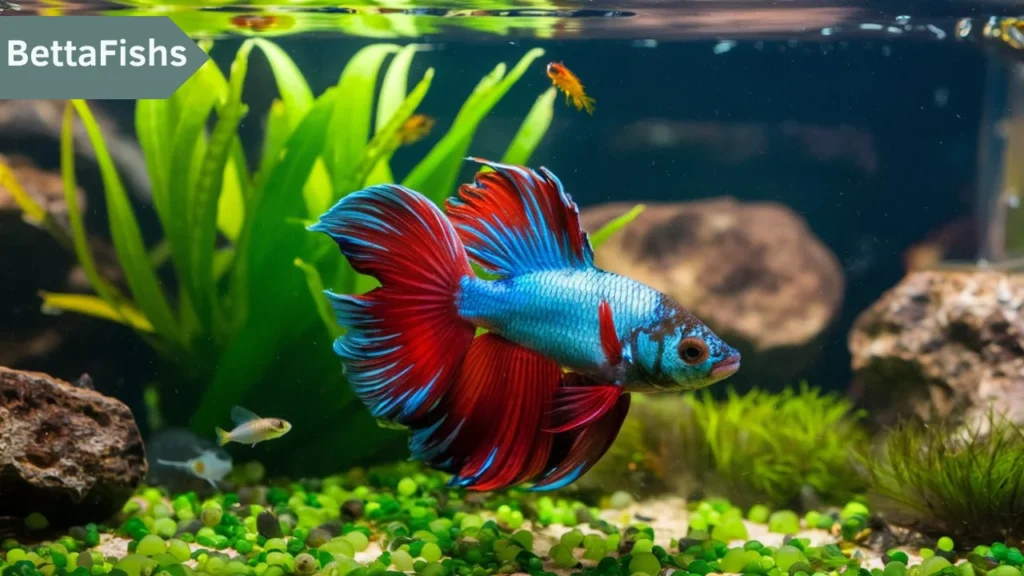
Freeze-Dried Food
Freeze-dried food is a good option for adding variety to your betta’s diet.
Types of Freeze-Dried Food
- Freeze-Dried Bloodworms: A popular treat that bettas love.
- Freeze-Dried Brine Shrimp: Another nutritious option that is easy to store and feed.
Advantages and Drawbacks
Freeze-dried foods are convenient and have a long shelf life. However, they can expand in your betta’s stomach if not soaked properly before feeding, which can lead to bloating and digestive issues.
How to Feed Betta Fish Properly
Proper feeding techniques are as important as the food itself to maintain a healthy betta fish.
Portion Control
How Much to Feed
A general rule is to feed your betta fish only as much as they can eat in 2-3 minutes, twice a day. Water quality concerns and health risks might result from overfeeding.
Signs of Overfeeding and Underfeeding
Overfed bettas may appear bloated, and uneaten food will cloud the water. Underfed bettas might become lethargic and lose their vibrant colors.
Feeding Schedule
Ideal Feeding Times
Feeding your betta fish once in the morning and once in the evening is ideal. This schedule mimics their natural feeding habits and keeps their metabolism stable.
Adjusting Feeding Schedules for Betta Behavior
Some bettas are more active during certain times of the day. Adjust feeding times based on your betta’s activity levels to ensure they are eating when they are most active.
Foods to Avoid for Betta Fish
Not all foods are safe for betta fish. Being aware of what to avoid is crucial.
Common Harmful Foods
Avoid feeding your betta fish bread, crackers, or any food that contains oils or fats not suited for fish.
Why Certain Foods Are Dangerous
Certain foods can cause digestive issues, bloating, or even more serious health problems like swim bladder disease. Always stick to foods specifically designed for bettas or ones that replicate their natural diet.
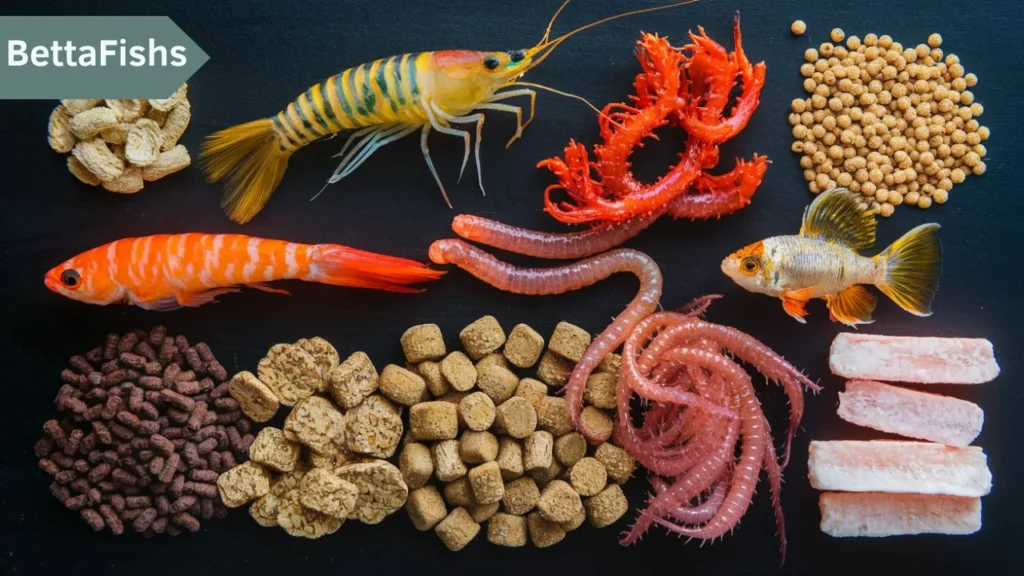
Special Diets and Treats for Betta Fish
Sometimes, betta fish may require special diets or occasional treats.
Occasional Treats
Occasionally, you can give your betta treats like freeze-dried bloodworms or brine shrimp to add variety to their diet and keep them interested.
Special Diets for Sick Betta Fish
If your betta fish is sick, a special diet may be necessary. Consult with a veterinarian for specific dietary recommendations based on your fish’s health condition.
Tips for Maintaining a Healthy Betta Fish Diet
- Variety is Key: Incorporate different types of food to provide a balanced diet.
- Monitor Health: Regularly check your betta fish for signs of health issues and adjust their diet as needed.
Conclusion
For your betta fish to be healthy and happy, you must feed them the proper diet. By understanding their dietary needs and providing a balanced diet, you can ensure your betta fish live a long, vibrant life.
FAQs
What is the best food for betta fish?
High-quality pellets specifically designed for bettas, along with occasional live or frozen food, are the best options.
How often should I feed my betta fish?
Feed your betta fish twice a day, only as much as they can eat in 2-3 minutes.
Can betta fish eat human food?
It’s best to avoid feeding betta fish human food, as it often lacks the necessary nutrients and can cause health issues.
What should I do if my betta fish refuses to eat?
If your betta fish refuses to eat, try offering a variety of foods. If the issue persists, consult a veterinarian.
How can I tell if my betta fish is getting enough food?
A well-fed betta will be active and maintain vibrant colors. Overfeeding signs include bloating and uneaten food in the tank.


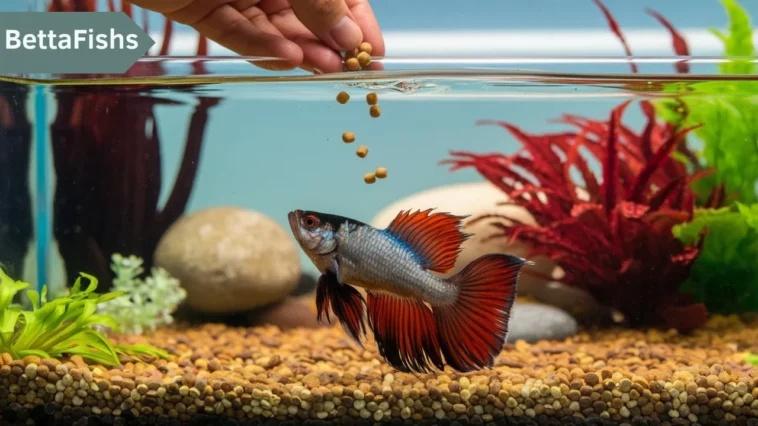
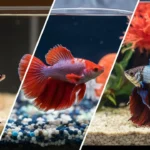
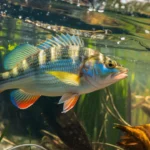
One Comment
Leave a ReplyOne Ping
Pingback:Sea Bear Bluegill Betta fish